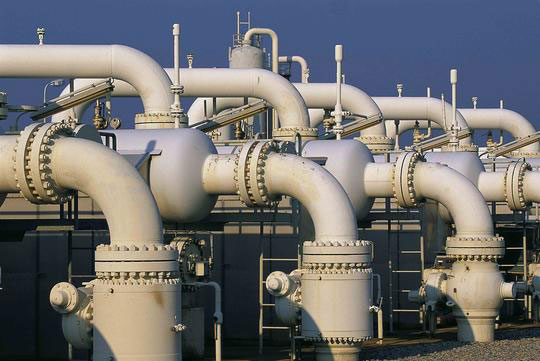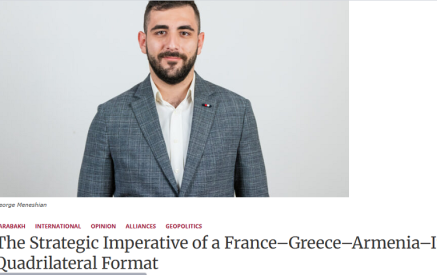The EU’s “Southern Corridor” project aims to diversify the energy sources and channels of communication received from the East. In 2000-ies, it was planned to carry out this project through “Nabucco” project. It was assumed to transfer the gas from the Caspian Sea basin through the gas pipeline starting from the territory of Azerbaijan to Georgia, Turkey, Bulgaria, Romania, Hungary and up to Germany through the territory of Austria. Later, it turned out that the implementation of “Nabucco” is not economically justified: necessary amount of gas was not found that could meet the design capacity of the pipeline. The preliminary version of the pipeline designed to transfer up to 30 billion cubic meters of gas per year, worth of 8 billion euro, assumed that apart from Azerbaijan (which could provide one-third of the demand), Turkmenistan will also supply gas, and, possibly, other Central Asian countries, as well.
However, the issue of the status of the Caspian Sea and Russia’s influence made Transcaspian pipeline projects vanish, and it became clear that relying only on the resources of Azerbaijan, the investments become very risky. To save the project, the authors decided to go for another direction: it was decided to bring the pipeline to Iraq by a separate branch from the territory of Turkey, and (presumably) to Iran. With regard to these countries, the political problems were observed fairly solvable. However, soon it became clear that implementing the project in that way is too risky, because the costs will reach up to 14 billion euros. As a result, the participants of the project, in turn, began to abandon the idea of implementing it, first, Germany and Hungary and then Turkey. It seemed that the “Southern corridor’ is in danger, moreover, parallel to this, Russia was actively diversifying channels of communication to Europe, and actually began to realize the construction of the pipeline by the name “Southern Stream”. But further developments showed that Azerbaijani gas, however, will reach Europe, by the way, regardless of Russian communications.
Implementation of a number of smaller projects contributes to it, which will launch in the near future. The first of them is Ander Anatolia pipeline, TANAP of (Trans Anatolian Pipeline – TANAP). It was envisaged to build a pipeline that will extend throughout Turkey, allowing the gas to pump out from East to West. As for the Balkans, there will be two gas pipelines. One of them is the “Nabucco – West”, the short version of “Nabucco” project. From the preliminary version, it is three times shorter, and beginning from the Turkish-Bulgarian border, crosses Bulgaria, Romania, Hungary, Austria and reach Austria. In Balkans, the second pipeline is the Ander Adriatic pipeline, TAP (Trans Adriatic Pipeline – TAP). Starting from Turkish-Greek border, passing through the territory of Greece, Albania, the pipeline, according to the plan, will cross the Adriatic sea and reach Italy. The last two projects, basically, are competitors because the only guaranteed source of charging for both is the Azerbaijani “Shah Deniz-2” mine.
Basically, Europe and even the whole West recently were watching in default as to what decision Baku will arrive at and whom it will give the preference to. Finally, about two weeks ago, on June 25, owners of the company exploiting “Shah Deniz” mine announced that they give preference to TAP. Why they came up to such a decision, the experts do not comment. They indicate a number of economic factors, but they all share one opinion that the decision is political and was reached not by official Baku, but by its persuasion. The representative of the U.S. State Department sent congratulation to Azerbaijan on the occasion of the decision. Even the President of consortium exploiting “Shah Deniz” has announced that the choice was made by both economic and political criteria. Wondering what kind of political standards they are talking about, we may only guess.
Read also
In our case, it is important that in the near future Azerbaijani gas will be used in Southern European countries, particularly in Greece, Albania and Italy. And if we take into account the negative experience of the Azerbaijani oil, the effect of gas should not be a surprise: there is no doubt that in the near future there will be no shortage of anti-Armenian initiatives in Greece and Italy, and Armenia will have the problem of balancing them at all levels that are consistent with our own resources, for instances, political, diplomatic, cultural and so on. This is going to be a new challenge for public institutions, especially diplomatic corps.
Movses DEMIRCHYAN
“Aravot” daily






















































